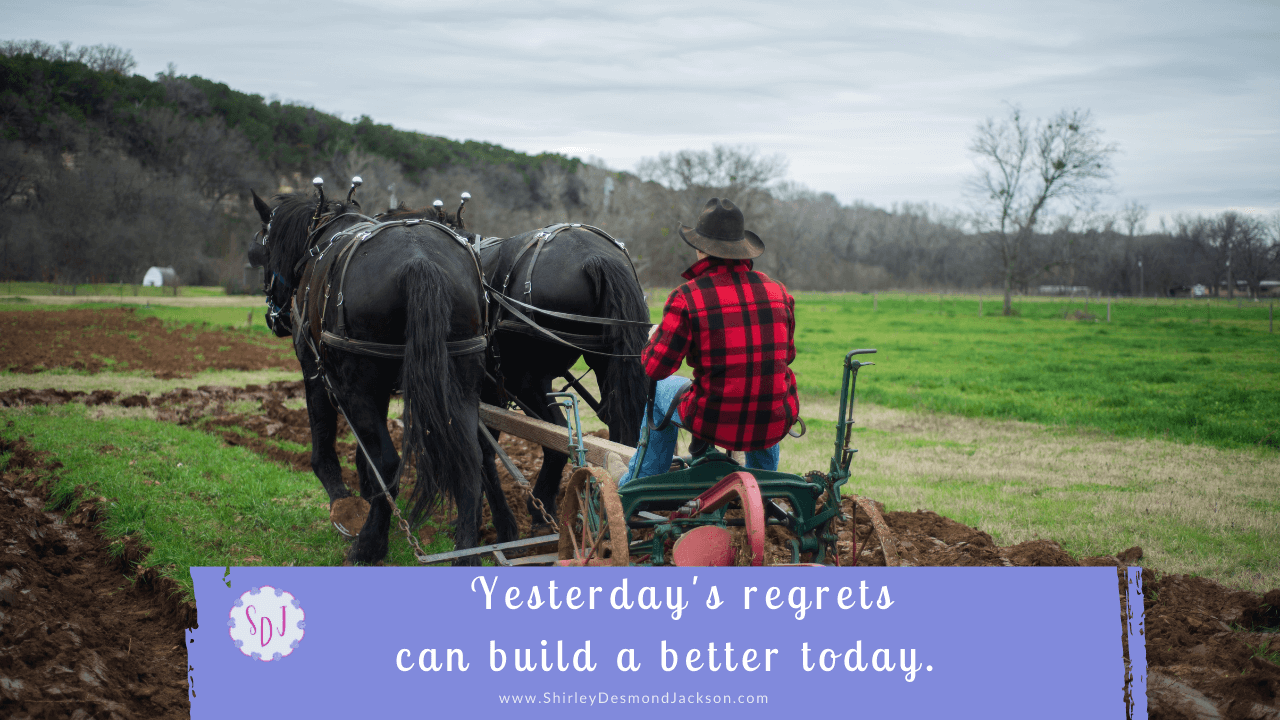When The “Would Haves” Sting
If only…
I understand why some people refer to these words as the saddest in the English language. They open our hearts to the sting of the “would haves”:
- If only I knew how little time she had left. I would have made the effort to go visit her.
- If only I listened before jumping to conclusions. We would have stayed friends.
- If only I had expressed my feelings. They would have known they were loved.
- If only I had worked less hours. I would have closer relationships with the people I love.
- If only I hadn’t been so afraid of failing. I would have followed my dreams.
- If only I hadn’t wasted time worrying about things outside of my control. I would have enjoyed my life more.
- If only I hadn’t fulfilled someone else’s expectations for me. I would have chosen a more meaningful and enjoyable career.
I adapted the above list from a blog written by Grace Bluerock, “The 9 Most Common Regrets People Have At The End Of Life”. As a social worker serving in hospice care, she summarized the most common regrets she heard from her patients.
Few of us are immune to the sting of regrets. Granted, regrets vary in significance. Many of my regrets come from daily life and don’t immediately impact my life in the ways the above list describes.
Still, I grieve over words said in anger and the hurt they caused. I regret missed opportunities to express my love or appreciation for others. I waste way too much time and energy stressing over situations I can’t control.
If I continue to act in these ways, my daily regrets could accumulate to a serious lifetime regret. Fortunately, words Jesus shared with a young man help me gain perspective when dealing with regrets.
Still another said, “I will follow you, Lord; but first let me go back and say goodbye to my family.”
Jesus replied, “No one who puts a hand to the plow and looks back is fit for service in the kingdom of God.” (Luke 9:61-62 NIV)
In this passage, the young man promised to follow Jesus, if only he could first say goodbye to his family. On its surface, the request seems reasonable. But in His response, Jesus gives me new insight.
Plowing fields in the time of Jesus meant hard work. In order to create straight rows, farmers kept their focus on an object directly in front of them. If they looked back, they risked plowing crooked or uneven rows.
I can’t help but wonder if Jesus saw something in the heart of this young man. Although he initiated following Jesus, he expressed regret about leaving his family. Jesus reminded the young man he couldn’t follow Jesus wholeheartedly if he allowed himself to look back and regret what he left behind.
Regrets are like that. They cause us to look back, and we lose our focus on what lies ahead. But if we learn from them, regrets can also help us make our future paths straight.
To do this, a wise person once said: Replace your “if only” with “next time”:
- Next time I will make the effort to visit.
- Next time I will listen.
- Next time I will express my feelings.
- Next time I will choose my relationships over my work.
- Next time I will take the risk to follow my dream.
- Next time I will resist the temptation to worry and spend time enjoying life.
- Next time I will choose the job which is meaningful for me.
When the “next time” comes, these decisions will keep our paths straight and leave fewer regrets.
As I continue down the road, new opportunities will come knocking. When they do, I pray to follow through on my “next time” decisions. Wherever the road takes you, I pray you can do the same.


Shirley, what great insight! And I love the “next time” advice. It’s something we can begin applying today to make our tomorrow’s better.
Thank you Sheila! I agree~ my “next time” decisions help take the sting out of regret. I appreciate your encouraging feedback!